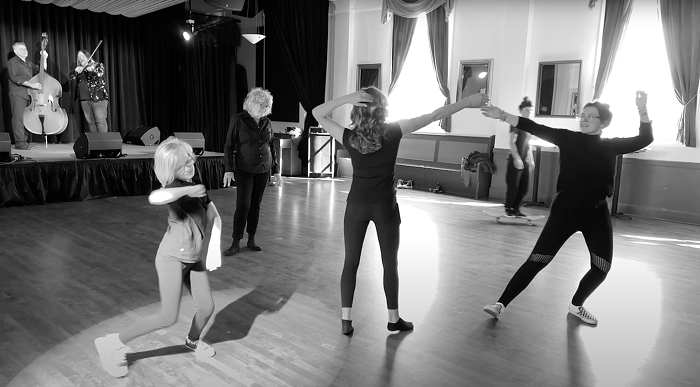JOYCE MANOR had no expectations of success when the group released its self-titled debut album in 2011.
"I remember thinking when the label that we were originally on put out our first record, 'Oh my god, these guys are gonna press 1,000 of these and sell eight copies,'" says singer/guitarist Barry Johnson. "It's different now, but in 2008 when we started the band, there was no conversation happening about pop-punk—it was still a taboo term, and there was still all this shame and embarrassment surrounding it. It was tricky, because then, when you told people you were starting a pop-punk band, they'd be like, 'Really? Do you know what year it is?' It'd be like telling people you were starting a rap-rock band."
Those skeptics would eventually eat their words: Joyce Manor's first record went on to become a critical and fan favorite, topping several year-end best-of lists and renewing pop-punk interests within the context of the underground. It'd be myopic to peg them as mere revivalists however; "pop-punk" isn't a tag Johnson seems particularly comfortable having ascribed to his music anyway.
"I grew up more on bands like the Queers and Dillinger Four, which are kind of pop-punk. But it was really surprising to me when this community that was more on the New Found Glory or Lifetime side of things—like 'hardcore breakdown' sort of kids—accepted us, because to me we don't sound anything like those sorts of bands," Johnson says.
Fans might have latched onto the superficial similarities between Joyce Manor and those mall-core bands, but there's a timeless quality to these songs that distinguish them from the rest of the pop-punk oeuvre. Stripped of its vaguely Warped Tour-ish veneer, this is timeless, classicist pop à la the Beach Boys, in its evocations of sunny, suburban naiveté, a recurring motif in the Torrance, California band's material. The Smiths, too, come to mind in the emphatic melodrama of songs like "Constant Headache." Joyce Manor cleverly filters these broad pop sounds through a hardcore lens, synthesizing them with the no-fucks-given allure of early-'90s indie-rock bands like Guided by Voices and Sebadoh.
After their sophomore LP, 2012's stylistically erratic, 13-minute-long Of All Things I Will Soon Grow Tired, the group made the potentially controversial decision to sign with Epitaph Records, a label notorious for attempting to homogenize its roster. But the resultant LP, pithily titled Never Hungover Again, couldn't have been farther from the nightmare scenario. Never Hungover Again manages to be the group's most sophisticated effort to date, while retaining the raw, unflinchingly personal essence of the group's early material.
When I ask Johnson if the group's jump to a bigger label and progression towards a poppier sound has alienated the group's more hardcore-oriented fans, he tells me he doesn't think so. "Early on, we were using really shitty PAs, and you had to kind of yell to hear yourself," says Johnson. "I've practiced singing a lot—I'm better at singing now—and I was also just younger and didn't know what the fuck I was doing with my life, so I'd feel silly, or like I was forcing or faking it, if I was still doing the same stuff now. But I mean, we all grew up listening to hardcore, we still like hardcore, I think because it seems so meaningful. But I think pop can also be meaningful, and I think it can actually say more than a hardcore song. I think that's why people like Joyce Manor—because we're a pop band that strives to be meaningful."



















